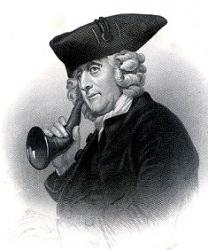1791 - 1853 Author of "Oh, Teach Us More" in Choice Hymns of the Faith Lloyd, William Freeman, was born at Uley, Gloucestershire, Dec. 22, 1791. As he grew up he took great interest in Sunday school work, and was engaged in teaching both at Oxford and at London. In 1810 he was appointed one of the Secretaries of the Sunday School Union. He also became connected with the Religious Tract Society in 1816. Miller (to whom we are indebted for these details) says in his Singers and Songs of the Church, 1869, p. 418:—
"He commenced the Sunday School Teacher's Magazine, conducted for years the Child's Companion and the Weekly Visitor, and suggested the preparation of a large number of books for children and adults. His own literary productions were various, including several useful books for Sunday School teachers and scholars, and numerous tracts. He was also much engaged in compilation and revision."
Mr. Lloyd died at the residence of his brother, the Rev. Samuel Lloyd, at Stanley Hall, Gloucestershire, April 22, 1853. Several of his hymns and poetical pieces were given in the Religious Tract Society Child's Book of Poetry (N.D.), and the Royal Tract SocietyMy Poetry Book (N.D.). In 1853 he collected his pieces and published them as, Thoughts in Rhyme, By W. F. Lloyd, London, Hamilton & Co., and Nisbet & Co.
Of his hymns the following are common use:—
1. Come, poor sinners, come to Jesus. Invitation. (1835.)
2. Give thy young heart to Christ. A Child’s Dedication to Christ.
3. My [our] times are in Thine hand. My God, I Wish them there. Resignation. (1835.)
4. Sweet is the time of spring. Spring.
5. Wait, my soul, upon the Lord. In Affliction. (1835.)
The date given above, 1835, is from Spurgeon's 0ur Own Hymn Book, 1866, and was supplied to the editor by D. Sedgwick. We have no other authority for that date. The earliest we can find is No. 3, which is in Hymns for the Poor of the Flock, 1838. That hymn is very popular.
--John Julian, Dictionary of Hymnology (1907), p. 680
W. F. Lloyd
